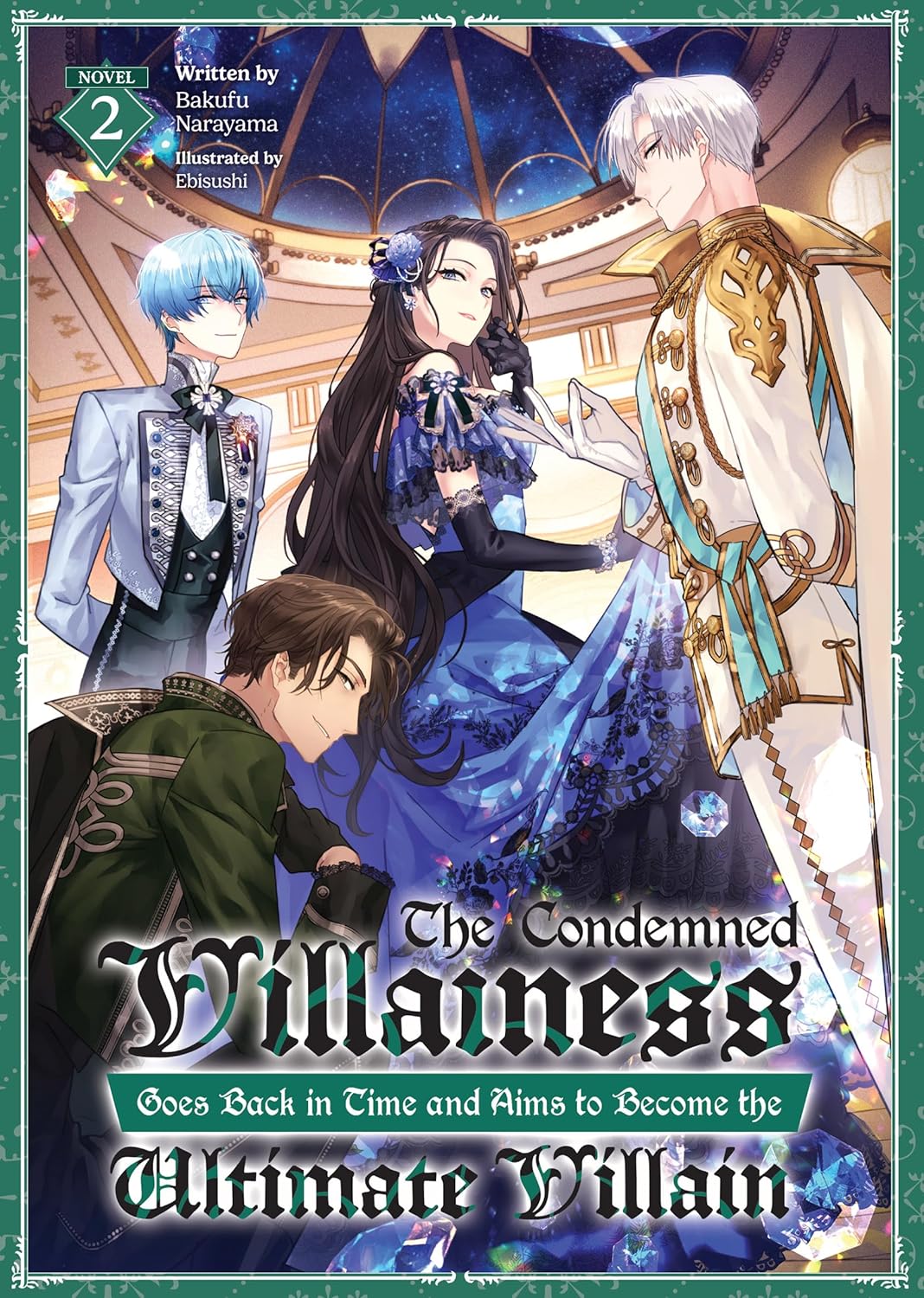By Bakufu Narayama and Ebisushi. Released in Japan as “Danzaisareta Akuyaku Reijō wa, Gyakkō-shite Kanpekina Akujo o Mezasu” by TO Books. Released in North America by Airship. Translated by Alyssa Niioka. Adapted by Vida Cruz-Borja.
Sometimes you know that the worst case scenario is not going to happen. Not because this series wouldn’t kill anyone off – there are one or two deaths in this book, and I expect that trend to continue – but more because sometimes the author hits on a new character who is so good that they cannot bear to pull the trigger and have them die, even if they happen to be the evil mastermind. Yes, that’s right, the major weakness of the first book was the “heroine” being a terrible character, and the author has gone above and beyond to fix it, to the point where, when Claudia manages to save the day, I went “thank God”. Sometimes you just want people to stick around. Well, OK, I mostly want them to stick around. More on that later. But it does make this volume stronger than the previous one.
Claudia has successfully managed to avoid her fate from her previous life, and her younger sister has been quietly sent off (and, thankfully, does not reappear here). Now she’s free to welcome a delegation from the nearby nation of Bari, which is having a bit of political upheaval at the moment, and has exiled the King’s younger brother, Raul, to Harland for the duration. Unfortunately, the political intrigue has gone away from Bari and come to Harland – Sylvester has to leave for several weeks to deal with a situation in a remote part of their nation, Raul’s faction are plotting to put him on the throne despite his own wishes, and his handsome and clever aide is clearly plotting something clever and dreadful. Worst of all, Claudia recognizes Raul from her past life, when he came to her brothel.
I really hate using the word “yuribait”, which these days has been loosely defined as anything that doesn’t end with a confession and a kiss. But if I *did* use it, this series would probably fall under the category. Claudia and Sylvester are still both in love, and the series, which has several opportunities to do so, never even comes close to admitting that lesbians exist. But in addition to the close relationship between Claudia and Helen, her maid, and her rival and best friend Louise, we also get Charlotte, a timid and large-breasted young woman whose parents are trying to get her to use her boobs to get her man, when this is the last thing she wants to do. By giving her incredibly good advice and also being, well, beautiful and cool, Charlotte falls deeply for Claudia, calling her “oneesama” (OK, yes, it’s translated). And then there’s Lestea, who goes from “evil lesbian stereotype” to “obsessive lesbian stereotype” over the course of the book. That was the one part of her arc I was unhappy with. Oh yes, and Claudia also dresses in a suit to secretly visit her old brothel, and manages to not only seduce all her old sex worker friends within thirty seconds but also agrees to fund it. This isn’t going to be yuri, but boy howdy it is an Akogare Festival.
Still, on the whole this was better than the first volume, and I look forward to seeing what happens next, and also hope it is shorter than 406 pages.



